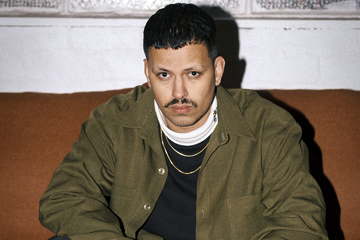'Who Gives A F*ck About Australian Music?' BIGSOUND Does
The question remains – How do we make Australian music relevant to Australian audiences?

'Who Gives A F*ck About Australian Music?' panel (Credit: Mick Radojkovic)
The Southern Hemisphere’s biggest music conference, BIGSOUND, is more than just a junket around Fortitude Valley in early Spring. It’s a chance to really ask the question—Why is Australian music so important, and why are we all here?
Let’s make no mistake: BIGSOUND is still a hugely important and relevant event. Judging by the thousands of people in attendance in Brisbane and the packed room at this panel, Australian music is essential and an integral driving force behind why everyone makes their way to Brisbane for this conference and music festival every year.
But, for many, the question remains – How do we make Australian music relevant to Australian audiences?
Unfortunately, this answer was not answered in the BIGSOUND panel, Who Gives A F*ck About Australian Music?
Leah Flanagan, Chris Carey, Alison Bremner, Jess Keeley, and Jaddan Comerford were all on hand to try to answer the question prompted by the panel name, but the hour-long discussion barely tackled it.
Indeed, the topics of ‘What is Australian Music?’ and ‘Why is it important?’ were discussed, and the prompting from panel host Tom Larkin strived to discuss the issues of how to make Australian music popular, but the panel really didn’t tackle the tough issues.
Don't miss a beat with our FREE daily newsletter
What are the tough issues?
For starters, how can Australian audiences be encouraged to listen to local music?
It’s a topic that is raised early, particularly when Larkin discusses the concept of ‘Glocalisation’ and the fact that many countries have local artists dominating their radio play and charts—so why not Australia?
Unfortunately, we never quite reached a conclusion.
With the lack of distinct and enforced quotas in the Australian radio landscape and no enforcement of local support for international acts, it feels like there is a lack of support for really pushing for local promotion.
Jaddan Comerford, CEO of Unified Music Group, pointed out, “We need to be coming together more,” but isn’t that what BIGSOUND is all about?
The topic moved on to the cultural cringe many artists feel when promoting their music. Is it holding us back? The panel seemed to agree that the fear of embarrassment often holds artists back from being successful.
Jess Keeley, artist manager and industry veteran, suggested that artists should aim to have a “long, embarrassing and (hopefully) fruitful” career.
Is the well-known and overtly destructive ‘tall poppy syndrome’ killing our industry? There is a consensus that Australian artists are less likely to sell themselves and are “not thirsty enough” compared to our Northern Hemisphere compatriots.
Leah Flanagan, musician and Director of the National Aboriginal and Torres Strait Islander Music Office (NATSIMO) made the point that integrity is important in the local scene. Representing where you come from carries the weight of responsibility for your community, and getting judged is a real consequence of success.
It highlighted just how poorly success is judged in the local community. Why are people so quick to judge when an artist becomes popular? Perhaps, the outward-facing lens needs to be focused more internally when analysing why Australian music success is not accepted in this country.
Whilst the panel didn’t dive deeply into how to encourage more Australian audience or why there appears to be a lack of support from commercial channels in this area – Comerford promoted a sense of positivity – “If you’re positive, outcomes will be better”, he shared before finishing with “Let’s have some fucking fun!”
The panel didn’t provide any long-needed answers, but it did offer a positive assessment of the industry's current state and the opportunities it sees within this country and the world. As Comerford iterated, you’ve just got to “stop wasting time complaining about it and get on with it.”







